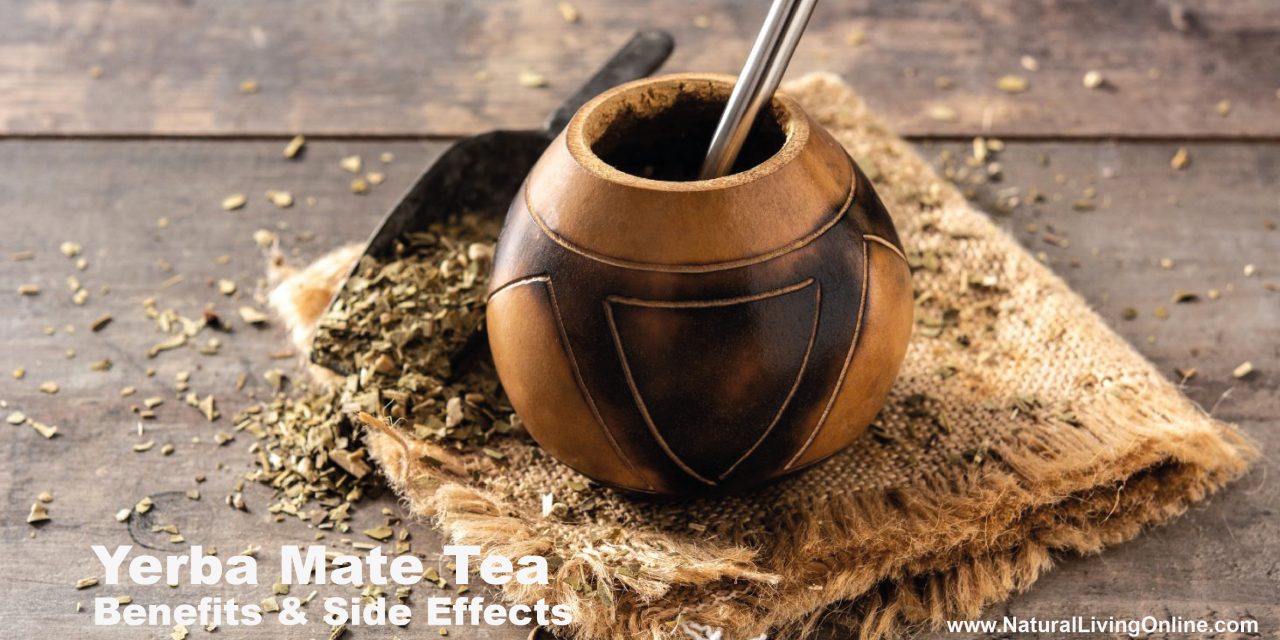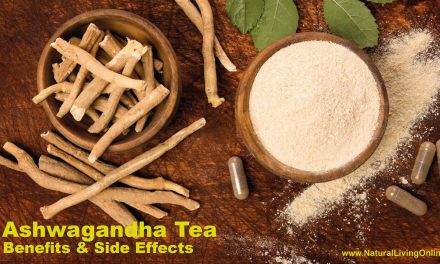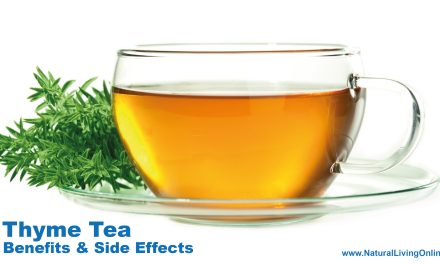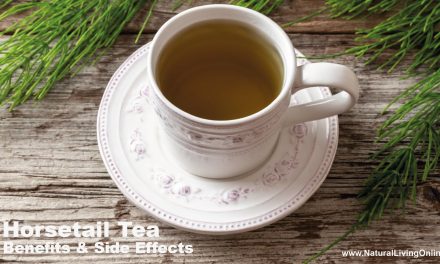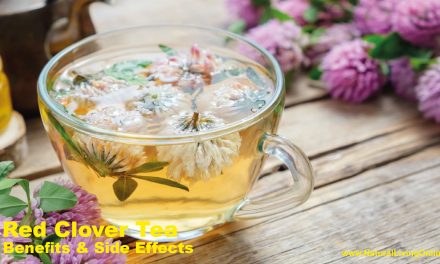Yerba mate tea comes from the leaves of the Ilex paraguariensis plant. This traditional South American drink has gained popularity worldwide due to its unique flavor and potential health benefits. Many people enjoy yerba mate as an alternative to coffee or regular black tea.
Yerba mate contains caffeine and antioxidants that may provide various health benefits. Some studies suggest it could help with weight management, boost energy, and support heart health. However, like any caffeinated beverage, it can also have side effects for some people.
Drinking yerba mate in moderation is generally considered safe for most adults. It’s often prepared in a special gourd and sipped through a metal straw called a bombilla. The taste is earthy and slightly bitter, similar to green tea but with its own distinct character.
Key Takeaways
- Yerba mate is a caffeine-containing herbal tea from South America
- It may offer health benefits due to its antioxidant content
- Moderate consumption is typically safe, but excessive intake can cause side effects
Nutritional Profile and Antioxidant Properties
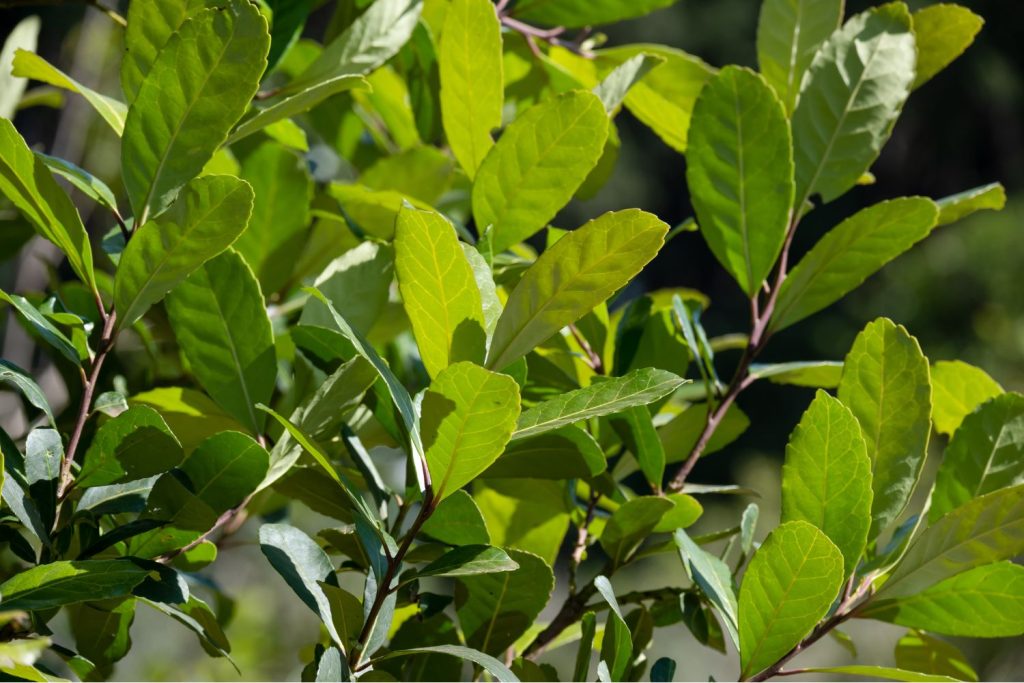
Yerba mate tea offers a rich blend of nutrients and powerful antioxidants. Its unique composition provides health benefits beyond basic hydration.
Vitamins and Minerals in Yerba Mate
Yerba mate contains several essential vitamins and minerals. It’s a good source of vitamin C, which supports immune function and skin health. The tea also provides B vitamins, including B1 and B2, which help with energy metabolism.
Minerals found in yerba mate include magnesium, potassium, and zinc. These play key roles in various bodily functions. Magnesium aids muscle and nerve function. Potassium helps regulate blood pressure. Zinc supports immune health.
A typical serving of yerba mate contains:
- Vitamin C: 10-15% of daily value
- Magnesium: 5-10% of daily value
- Potassium: 3-5% of daily value
The Role of Antioxidants
Yerba mate is rich in antioxidants, which protect cells from damage. These include polyphenols, xanthines, and caffeoyl derivatives.
Polyphenols in yerba mate have anti-inflammatory properties. They may help reduce the risk of chronic diseases. Xanthines, like theobromine, can improve mood and focus.
Yerba mate also contains saponins. These compounds may help lower cholesterol levels. They might also boost immune function.
The antioxidant content of yerba mate is higher than green tea. One study found it has up to 90% more antioxidants than green tea.
Potential Health Benefits
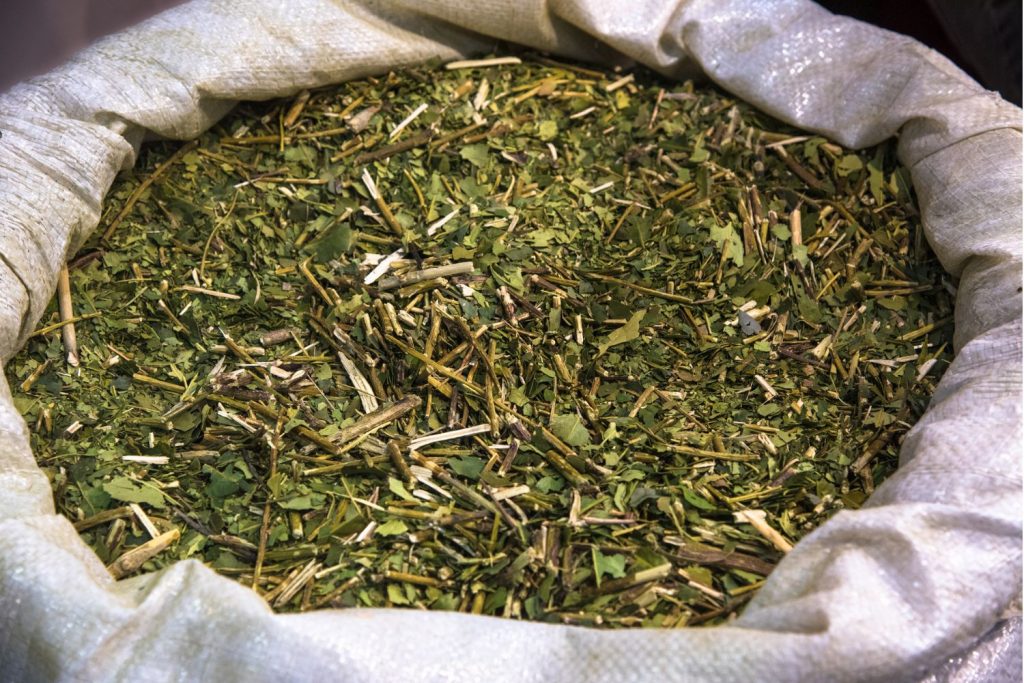
Yerba mate tea offers several potential health benefits. It may support heart health, aid weight management, help control blood sugar, and boost cognitive function.
Cardiovascular and Heart Health
Yerba mate tea may improve heart health in multiple ways. It contains antioxidants that can reduce bad cholesterol levels. This effect could lower the risk of heart disease.
The tea also has anti-inflammatory properties. These may help protect blood vessels from damage. Some studies suggest yerba mate could help lower blood pressure.
Regular drinkers of yerba mate may see improvements in their overall cardiovascular health. However, more research is needed to confirm these effects.
Weight Management and Metabolism
Yerba mate could aid in weight loss efforts. The tea contains compounds that may boost metabolism and increase fat burning.
Some studies show yerba mate can delay stomach emptying. This may help people feel full for longer, potentially reducing calorie intake.
The caffeine in yerba mate can also increase energy expenditure. This means the body burns more calories throughout the day.
While not a magic solution, yerba mate may support other weight loss strategies when combined with a healthy diet and exercise.
Blood Sugar Control and Diabetes
Yerba mate shows promise for blood sugar control. It may help lower blood sugar levels, which is important for managing diabetes.
The tea contains compounds that can improve insulin sensitivity. This helps the body use glucose more effectively.
Some research suggests yerba mate could reduce the formation of advanced glycation end-products. These harmful compounds are linked to diabetes complications.
For people with or at risk of diabetes, yerba mate might be a helpful addition to their diet. But it’s not a replacement for medical treatment.
Cognitive Function and Mental Health
Yerba mate may boost brain function and mental health. The caffeine and other compounds in the tea can increase alertness and focus.
Some studies suggest yerba mate could improve memory and learning. It may also help protect brain cells from damage.
The tea contains nutrients that support the production of mood-regulating chemicals in the brain. This might help reduce symptoms of depression and anxiety.
Regular yerba mate drinkers often report feeling more energetic and mentally sharp. However, individual responses can vary.
Side Effects and Considerations
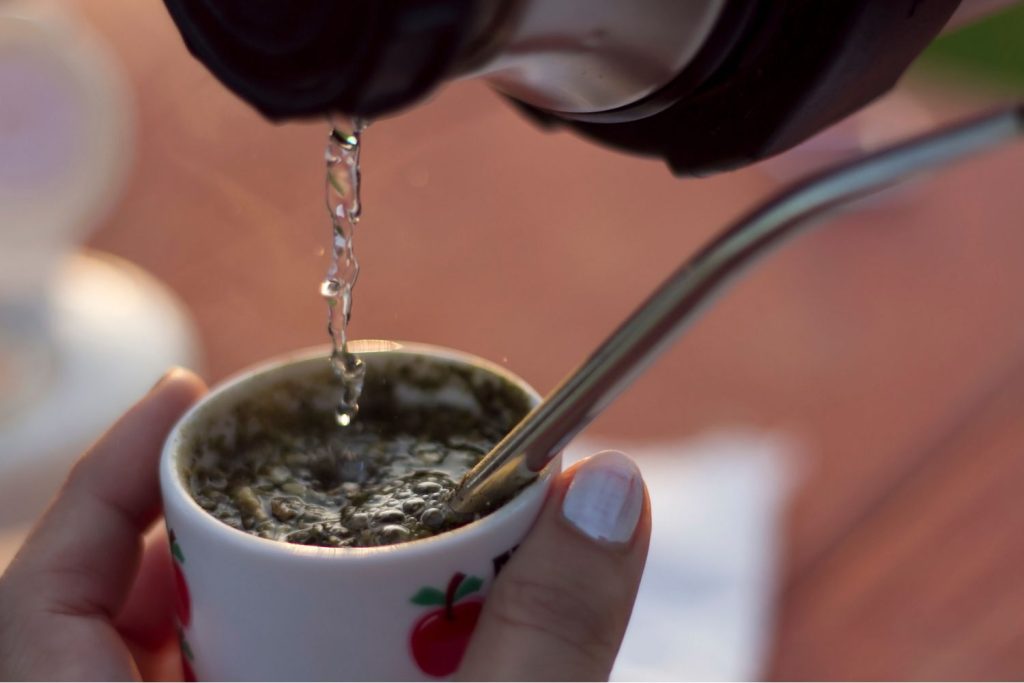
Yerba mate tea can cause some unwanted effects. People should know about these risks before drinking it regularly.
Yerba mate contains caffeine that can lead to side effects. These may include headaches, anxiety, and insomnia. Some people might feel jittery or have a fast heartbeat.
High caffeine intake can raise blood pressure in some people. This effect may be worse for those already dealing with high blood pressure.
Drinking large amounts of yerba mate might make it hard to fall asleep or stay asleep. The caffeine can stay in the body for several hours.
Potential Risks for Specific Groups
Pregnant women should be careful with yerba mate. The caffeine could raise the risk of miscarriage or low birth weight. Breastfeeding mothers may want to limit their intake too.
Children and teens may be more sensitive to caffeine’s effects. It’s best for them to avoid or limit yerba mate.
People with bleeding disorders should be careful. Yerba mate might slow blood clotting.
Those with heart problems should talk to a doctor before drinking yerba mate regularly. The caffeine could affect heart rate and rhythm.
Preparation and Consumption
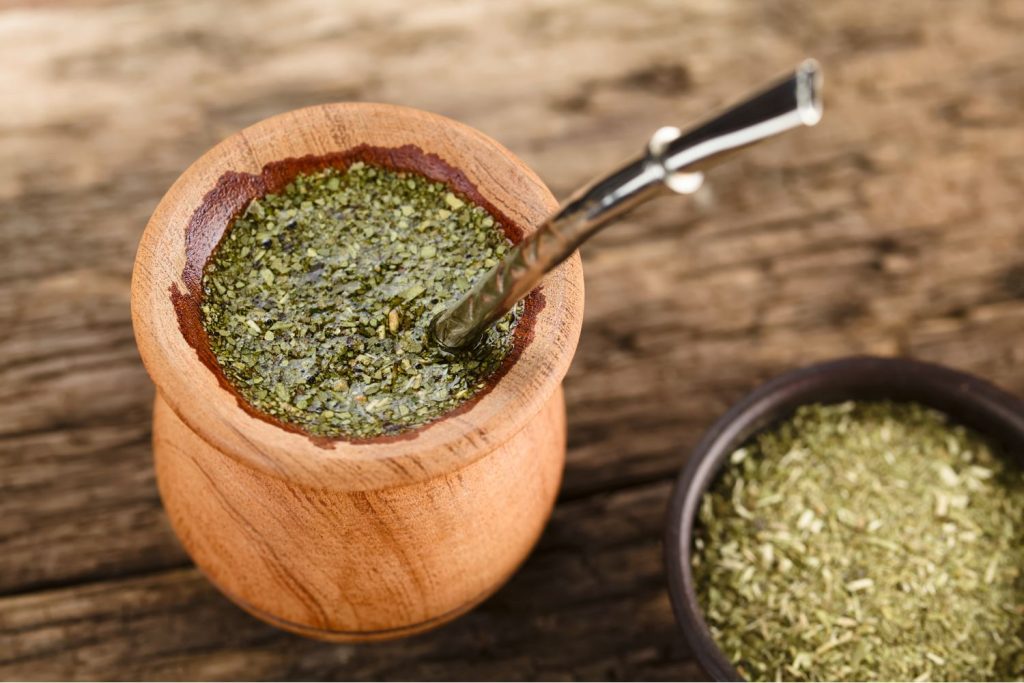
Yerba mate can be enjoyed in various ways, from traditional methods to modern adaptations. The preparation and consumption of this drink involve specific tools and techniques.
Traditional Way of Drinking Yerba Mate
The traditional method of drinking yerba mate uses a gourd, also called a calabash. This natural container is filled about two-thirds full with dried yerba mate leaves.
Hot water is then poured into the gourd. The temperature should be around 70-80°C (158-176°F), not boiling. This helps extract the flavors without making the drink bitter.
A metal straw called a bombilla is used to drink the infusion. This straw has a filter at the bottom to strain out the leaves. The mate is passed around in a social setting, with each person drinking from the same gourd and straw.
Modern Consumption Practices
Today, yerba mate is also consumed in more convenient ways. Tea bags filled with yerba mate leaves are widely available. These can be steeped in hot water like regular tea.
Many people now drink yerba mate as a cold beverage. It’s often mixed with fruit juices or carbonated water for a refreshing drink. Some companies sell ready-to-drink yerba mate in cans or bottles.
Yerba mate can also be prepared in a French press or coffee maker. This method is quicker and easier for those who don’t have traditional mate-drinking equipment.
Conclusion
Yerba mate tea offers a mix of possible health benefits and risks. It may help with weight loss, heart health, and energy levels.
The drink contains caffeine and antioxidants. These can boost mental focus and fight cell damage. Some studies show it might lower cholesterol too.
But yerba mate also has some downsides. Drinking large amounts may increase cancer risk, especially when combined with smoking or alcohol.
Caffeine-related side effects can occur. These include trouble sleeping, headaches, and anxiety in some people.
Pregnant women should talk to a doctor before drinking yerba mate. The caffeine content could pose risks.
Moderation is key when enjoying yerba mate. Most benefits come from reasonable intake. Drinking 1-2 cups a day is likely safe for most adults.
As with any dietary change, it’s wise to consult a healthcare provider. They can offer personalized advice based on individual health needs.
Frequently Asked Questions
What are the health benefits associated with drinking yerba mate?
Yerba mate may offer some health perks. It contains antioxidants that could help lower cholesterol. The drink might also boost energy and focus. Some people use it to try to improve memory and thinking skills. More research is needed to confirm these effects.
Can yerba mate have any negative effects on your health?
Yerba mate can cause side effects in some people. Common issues include trouble sleeping, upset stomach, and faster heart rate. Drinking large amounts may increase cancer risk. This risk seems higher for those who also smoke or drink alcohol often.
How does yerba mate compare to traditional tea in terms of caffeine content?
Yerba mate has caffeine like coffee and tea. Its caffeine content can vary. Generally, it has more caffeine than most teas but less than coffee. The exact amount depends on how it’s prepared. Steeping time and water temperature affect caffeine levels.
Is daily consumption of yerba mate safe?
Moderate yerba mate intake is often safe for most adults. Some studies have looked at daily use for up to 12 weeks. But drinking large amounts every day might not be safe. It’s best to talk to a doctor about how much is okay for you.
What are the potential weight loss effects of incorporating yerba mate into your diet?
Some people drink yerba mate to try to lose weight. It might help a bit, but the effects are likely small. Yerba mate has caffeine, which can boost metabolism slightly. But it’s not a magic weight loss cure. A balanced diet and exercise are still key.
Does yerba mate have any impact on hormone levels, specifically estrogen?
There’s not much clear evidence about yerba mate and hormones. Some herbs can affect hormone levels, but yerba mate’s effects aren’t well-studied. If you have hormone-sensitive conditions, it’s smart to ask a doctor before drinking yerba mate regularly.
References:
Yerba Mate—A Long but Current History
Yerba Mate Tea (Ilex paraguariensis): A Comprehensive Review on Chemistry, Health Implications, and Technological Considerations
Yerba maté: Pharmacological Properties, Research and Biotechnology
This website does not provide medical advice.
All information provided on this website, and on associated social media networks, including but not limited to texts, images, and numbers are for general information purpose only. It is not intended as medical advice and it does not include all possible precautions, side effects, or interactions that may occur. Neither NaturalLivingOnline.com nor its author/founder take responsibility for how you use this information. Statements contained on NaturalLivingOnline.com have not been evaluated by the FDA. You should conduct thorough research via multiple sources and consult your physician or qualified doctor before using any essential oil or herbal remedy. Information on NaturalLivingOnline.com must not be relied upon for medical, legal, financial or other decisions.

